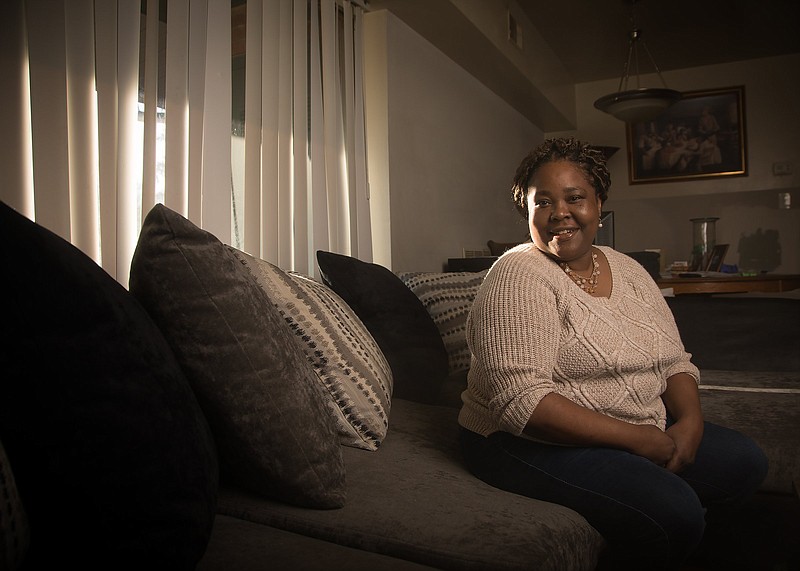When Chattanooga resident Stephanie Carson lost her rental home and everything she had in an electrical fire last November, she did not have renter's insurance.
The local chapter of the American Red Cross paid for a hotel room where Carson could stay for a week and also gave her a voucher for furniture - although she had nowhere to put it - and a voucher for food.
She said the Ooltewah organization where the voucher was redeemable initially turned her away because she lacked identification, which burned in the fire with everything else she owned.
Carson said she knows renter's insurance is relatively inexpensive, but she feels most people would also choose to pay their power bill if they only had the money to pay one or the other.
At the time of the fire, Carson's mother was ill and in the hospital, so she was unable to stay with her when her weeklong hotel stay ended. Carson was homeless from November 2019 to February 2020, usually sleeping in her car or in a park.
"I thought mom was going to die, so it was pretty hard," said Carson, who in addition to the fire and her mother's illness was already dealing with mental health issues including paranoid schizophrenia, bipolar disorder and depression.
She eventually called 211 for assistance from the local United Way and was referred to Family Promise of Greater Chattanooga, a nonprofit organization that helps low-income families become independent. Through the Chattanooga Times Free Press Neediest Cases Fund, within 24 hours caseworker Kathleen Wright was able to provide Carson with $500 to cover a deposit on a new place to live.
Once she got help from Family Promise, Carson said she brought her new ID to the Ooltewah organization and redeemed the voucher from the Red Cross.
"It took me a while to go back, but I needed to because I didn't have anything," she said of returning to the organization that previously turned her away.
Unforeseen circumstances, such as the fire that left Carson homeless, are usually what put people in a position to seek help from Neediest Cases, Wright said.
Established in 1913 by then-Publisher Adolph Ochs of the Chattanooga Times, the Neediest Cases Fund is administered by the United Way of Greater Chattanooga and provides one-time assistance to help people who find themselves unexpectedly in need to get back on their feet.
(Donate to the Neediest Cases Fund here)
Other Ways to Donate
Note: Under the CARES Act, taxpayers who don't itemize deductions may take a deduction of up to $300 for cash contributions made in 2020 to charitable organizations.Send the following information and a check to United Way of Greater Chattanooga. Please note that the donation is for Neediest Cases and mail to United Way, 630 Market St., Chattanooga, TN 37402. Enclosed is a donation for $ Name: Address: City: State/Zip: Donor Acknowledgement options: In honor of: In memory of:All donations will be acknowledged by mail and in the newspaper. Please state if you do not want us to publish a name in the list of contributors. Donations will be accepted through Dec. 31.
"So many people feel like one-time assistance would be enough for them to become stable once again," Wright said.
Carson said she doesn't want to think about what may have happened if she didn't get help from Family Promise and Neediest Cases, but she guesses that she probably would have been homeless for several more weeks.
"God is on his own time," Carson said. "I went through what I went through for his benefit so that I could have a testimony to glorify and worship him."
Donations to the Neediest Cases Fund are accepted through Dec. 31 and are recognized in the Times Free Press.
Read more stories of 2020 fund recipients at timesfreepress.com/neediest-cases.
Contact Emily Crisman at ecrisman@timesfreepress.com or 423-757-6508.
